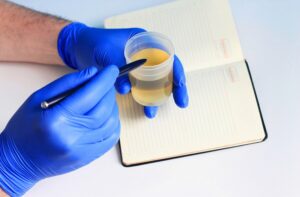Gonorrhea is a sexually transmitted infection (STI) caused by the bacterium Neisseria gonorrhoeae. While often asymptomatic, gonorrhea can cause serious complications if left untreated, including pelvic inflammatory disease (PID) in women, infertility, and increased risk of HIV transmission.

What is Gonorrhea?
Overview of Gonorrhea
Gonorrhea is a bacterial infection caused by Neisseria gonorrhoeae. It primarily affects the mucous membranes of the reproductive tract, but it can also infect the throat, eyes, and rectum.
Transmission
Gonorrhea spreads through sexual contact, including vaginal, anal, and oral sex. It can also be transmitted from mother to child during childbirth.
Symptoms
- Men: Burning sensation during urination, discharge from the penis, and painful or swollen testicles.
- Women: Increased vaginal discharge, pelvic pain, and bleeding between periods.
- General: Many individuals may not exhibit symptoms, making regular testing crucial.
Importance of STI Testing for Gonorrhea
Early Detection and Treatment
- Prevention of Complications: Untreated gonorrhea can lead to pelvic inflammatory disease (PID) in women, epididymitis in men, and infertility in both.
- Avoiding Spread: Testing helps identify infections early, reducing the risk of transmission to partners.
Public Health Impact
Regular STI testing contributes to controlling the spread of gonorrhea in communities, especially with the emergence of antibiotic-resistant strains.
How is Gonorrhea Diagnosed?

Types of Tests
Nucleic Acid Amplification Test (NAAT)
- Description: A highly sensitive and specific test that detects gonorrhea DNA.
- Sample Collection: Swabs from the cervix, urethra, throat, or rectum, or a urine sample.
Culture Test
- Description: Involves growing the bacteria in a lab to confirm the infection.
- Purpose: Useful for identifying antibiotic resistance.
Gram Stain
- Description: A microscopic examination of stained samples to detect bacteria.
- Usage: Commonly used for diagnosing gonorrhea in men with symptomatic urethritis.
Where to Get Tested
- Healthcare Clinics: Most primary care providers offer STI testing.
- Specialized Centers: Sexual health clinics and public health facilities provide confidential testing.
- At-Home Testing Kits: Available for convenience, but confirmatory tests at clinics may still be required.
Treatment Options for Gonorrhea
Antibiotic Therapy
- Recommended Treatment: A single injection of ceftriaxone is the primary treatment.
- Oral Medications: Azithromycin or doxycycline may be added in some cases.
Addressing Antibiotic Resistance
- Monitoring: Culture tests help identify resistance patterns.
- Alternative Treatments: Research is ongoing to develop new antibiotics for resistant strains.
Benefits of Regular STI Testing for Gonorrhea
- Protecting Reproductive Health
Regular testing prevents long-term complications such as infertility and chronic pelvic pain.
- Reducing Transmission
Testing ensures early detection, reducing the risk of spreading the infection to others.
- Promoting Overall Health
STI testing often includes screening for other infections, offering a comprehensive health assessment.
FAQs About STI Testing for Gonorrhea
1. Who should get tested for gonorrhea?
Anyone who is sexually active, especially those with multiple partners or unprotected sex, should get tested regularly.
2. How often should I get tested?
The CDC recommends annual testing for sexually active individuals under 25 and for those at higher risk.
3. Can gonorrhea be cured?
Yes, with prompt antibiotic treatment, gonorrhea can be cured. However, re-infection is possible without precautionary measures.
4. Is STI testing confidential?
Yes, STI testing is confidential, and results are shared only with the individual being tested.
5. Can I test for gonorrhea at home?
Yes, at-home testing kits are available, but it’s advisable to confirm positive results with a healthcare provider.
Conclusion
STI testing for gonorrhea is a vital component of sexual health care. Regular testing ensures early detection, effective treatment, and prevention of complications. By reducing the stigma around testing and increasing accessibility, more individuals can take proactive steps to protect their health and that of their partners. If you are sexually active, consider incorporating STI testing into your routine healthcare to promote a healthier and safer lifestyle.
Contact our clinic for STI testing for Gonorrhea (469) 981-0529 or visit us https://tscmlk.com/
